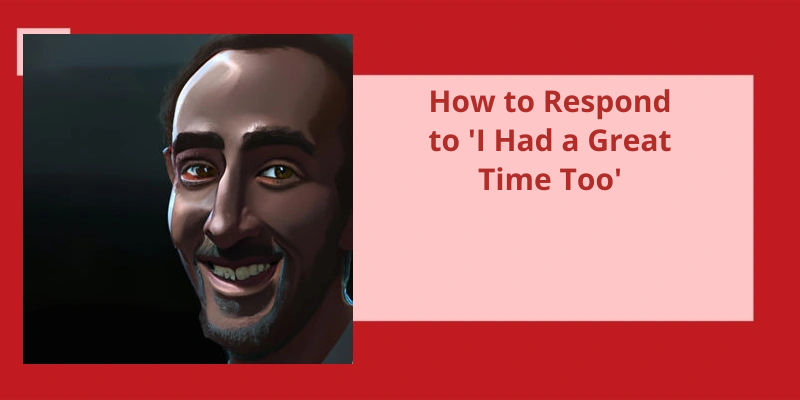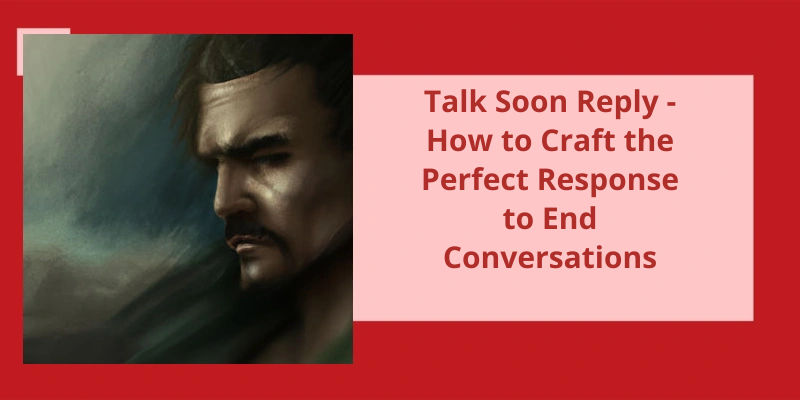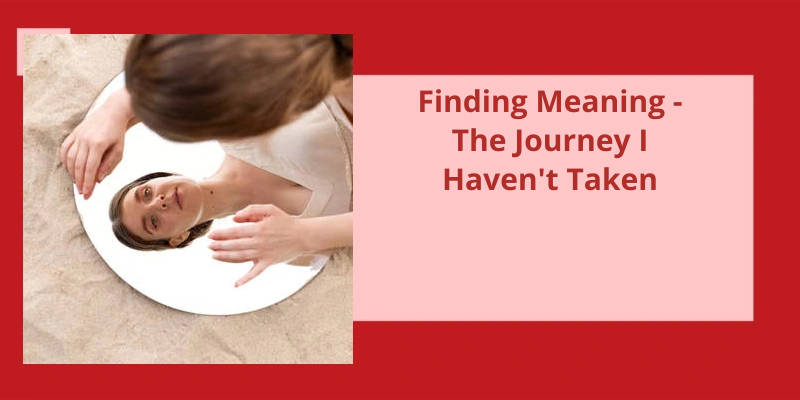It was nice seeing you.”. Responding to someone's statement of having had a great time can be tricky. The appropriate response depends on your own experience at the event or activity. If you shared the same positive experience, an enthusiastic agreement can further the conversation and solidify a connection. However, if your experience was not as positive, a polite acknowledgement can still maintain positive social relations. The key is to be genuine and respectful in your response, regardless of your own personal experience.
How Do You Say Thank You for a Good Time?
Saying thank you for a good time or for someones valuable time is an important gesture that showcases our gratitude towards people for taking that time out of their busy schedule to spend it with us. Whether it’s a friend or a colleague or a business associate, saying thank you is a simple yet powerful way to show our appreciation. There are countless ways to thank someone for their time and here are some examples to take inspiration from.
Firstly, saying a simple thank you is always a good way to express gratitude. It’s short and sweet yet carries a lot of meaning. It’s a great way to show someone that we appreciate their time and effort and that we’re grateful for it. We can say thank you in person or through a thank you note or an email.
Another way to thank someone for their time is to be specific. If someone has helped us with a particular project or task, we can thank them for their specific contribution. For example, if someone has given us valuable feedback on a project, we can say something like, “Thank you for taking the time to review our project and providing us with such insightful feedback. It really helped us improve our work.”
We can also thank someone for their time by acknowledging the effort they put in. If someone has gone out of their way to help us or has spent a lot of time working with us, it’s important to acknowledge that. We can say something like, “Thank you for your dedication and hard work. We couldnt have achieved this without you.”
Using a personal touch while thanking someone for their time is also a good idea. For example, if we’re thanking a friend for spending time with us, we can say something like, “Thank you for being such a wonderful friend and spending time with me. I always enjoy our conversations.”
Finally, we can also show our gratitude by offering to help the person in return. It’s a great way to show that we value their time and that we’re willing to give back. We can say something like, “Thank you for your time today. If theres ever anything I can do to help you, please don’t hesitate to reach out.”
By doing so, we can strengthen our relationships with others and create a positive impact on the people around us.
Different Cultural Customs and Manners of Saying Thank You
There are various cultural customs and manners for expressing gratitude across the world. In Japan, it’s customary to bow while saying “arigatou gozaimasu.” In India, putting your hands together in a prayer position and saying “thank you” or “dhanyavaad” is considered respectful. In the United States, people often express their thanks through written notes or verbally by saying “thank you.” These different customs and manners of saying thank you reflect the unique values and traditions of each culture.
Now that we’ve explored the various ways to express appreciation after spending time with someone, let’s dive into the next topic and discuss how to respond when someone thanks you for a good time. It’s a common situation that can leave you wondering what to say, but with a few simple phrases in mind, you can show your gratitude and strengthen the connection you’ve formed with the other person.
How Do You Respond to Thank You for Good Time?
As a good host, it’s natural to assume that youll receive a message of gratitude from your guests after having a great time with them. Though it’s a simple gesture, knowing how to respond to a thank you for a good time text, email, or message holds more importance than you think. It not only shows your guests that you value their presence and time, but it also demonstrates your social etiquette and appreciation for good manners.
First and foremost, saying “Youre welcome” is the most appropriate and conventional way to respond to a thank you for a good time message. This response acknowledges that youre grateful for their appreciation and grateful that they enjoyed their time at your event or gathering. It’s also a way to reciprocate the same feeling and remind them that you’d a good time too.
Additionally, adding a personal touch to your response can make it more thoughtful and meaningful. You may express something like, “It was lovely having you over” or “Im glad we could all catch up after so long.”. These sentiments show that you not only acknowledge the message but also hold fond memories of the time spent with them. It will make them feel more comfortable and appreciated, encouraging them to spend time with you again in the future.
Another way to show your appreciation is to express your gratitude with words of affirmation. You may say something like, “That means a lot to me” or “I appreciate you taking the time to let me know.”. This conveys that their gratitude has made an impact on you and that you feel positively about them. It will improve your relationship with your guests and may even create a deeper connection.
You may inquire about their experience, ask them what they enjoyed the most, or share your favorite moments from the event. This way, you can bond and relive shared memories, creating a positive and lasting impression.
The Importance of Expressing Gratitude in Social Interactions
Expressing gratitude is important in social interactions as it helps to create a positive and respectful relationship between individuals. By acknowledging and appreciating the efforts and actions of others, it helps to foster meaningful connections and build trust and rapport with others. This behavior also improves mental well-being and can lead to an overall increase in happiness and satisfaction in life.
Now, let’s explore what to say when someone tells you that they’d a good day. While it might be tempting to simply say, “That’s great!” there are several other ways to respond that can help keep the conversation going and show that you care about their well-being.
What Do You Say When Someone Says They Had a Good Day?
However, if someone tells you directly that they’d a good day, it would be appropriate to offer words of encouragement or affirmation. It’s always nice to celebrate with someone else when they experience small victories or moments of happiness. Depending on your relationship with the person, you can tailor your response accordingly. For a close friend, you could say, “Thats awesome! Im so happy for you!”. For a colleague or acquaintance, a simple “Glad to hear it!” or “Thats great news!” can suffice.
It’s important to be genuine in your response. If you don’t feel like celebrating with the person, it’s better to not say anything rather than offer a fake response. Sometimes, acknowledging someones positive experience and showing interest in their day can make all the difference. You could ask follow-up questions about their day to show that youre genuinely interested in hearing about their experience.
If someone has had a good day after a difficult time, it can be especially meaningful to offer words of encouragement. Perhaps theyve been struggling with something, and finally had a breakthrough or felt a sense of relief. In that case, you could say something like, “Im so happy to hear that! You deserve some good news after everything youve been through.”
Ultimately, the way you respond to someones good day depends on your relationship with them and the context of the conversation. No matter what, it’s important to show that youre happy for them and acknowledge their positive experience. Offering genuine support and affirmation can help build stronger relationships and foster positivity in our interactions with others.
Responding to Someone Who Had a Good Day When You’re Not Feeling Great Yourself
When someone tells you they’d a good day, it’s common to acknowledge their happiness without being dishonest about your own feelings. You can simply say something like, “I’m glad to hear you’d a good day. I’m not feeling my best today, but it’s nice to see you happy.” This lets them know that you care about their good news, while also being honest about how you feel.
Expressing gratitude and acknowledging the efforts of others can go a long way in building professional relationships. While saying “you’re welcome” might seem like a no-brainer, there are several ways to convey your appreciation in a more polished manner, especially in an email. Let’s explore some of the ways you can reply to thanks professionally.
How Do You Reply to Thanks Professionally?
When it comes to responding to thanks in a professional setting, it’s important to strike the right tone. While it may seem like a small gesture, expressing gratitude can go a long way in building strong relationships with colleagues, clients, or customers. To respond to thanks professionally, it’s generally a good idea to acknowledge the persons appreciation with a brief and gracious message.
One common way to respond to thanks is simply to say “youre welcome” or “my pleasure.”. While these are both polite and appropriate responses, they can come across as somewhat curt or impersonal if used repeatedly. To add a bit more personality to your replies, you might consider thanking the person in return or expressing your satisfaction at being able to help.
One way to do this is to say “I appreciate your message” or “thanks for the kind words.”. These phrases show that you value the persons appreciation and take their feedback seriously. If someone is thanking you for a specific action, such as completing a project or providing assistance, you might also add a sentence about how glad you were to be able to help. For example, “Im glad I could assist you with this project.”
Another option is to use a more casual or conversational tone, especially if the person thanking you is someone you know well. In this case, you might use phrases like “no problem” or “happy to help” to convey a sense of ease and camaraderie.
Whether you choose to use a formal or informal tone will depend on your relationship with the person youre responding to, as well as the context of the message. By taking the time to craft a thoughtful message, you can build stronger relationships and convey the level of professionalism and care that are critical to success in any professional setting.
Expressing gratitude is an essential aspect of effective communication, particularly when ending a conversation or correspondence. While there are varying opinions on the appropriateness of certain phrases, thanking someone for their time and consideration is generally viewed as a courteous and appropriate way to express appreciation. However, it’s important to consider the context and audience when choosing the appropriate language.
Is Thank You for Your Time and Consideration Rude?
When it comes to expressing your gratitude, there are a lot of ways to do it. Whether you”ve been offered a job interview, had a service performed, or received a donation, saying thank you can go a long way. However, the way that you say thank you matters just as much as the words themselves.
One common way to express your appreciation is to say “thank you for your time and consideration.”. While this phrase may seem polite on the surface, some people believe that it can come across as insincere or redundant. After all, if someone has taken the time to read your application or consider your request, isn’t that enough?
Despite some people’s reservations about this phrase, it’s still considered a standard way to express your gratitude. It’s a way to acknowledge the effort that the other person has put in on your behalf, and to show that you recognize that their time is valuable.
Of course, there are situations where “thank you for your time and consideration” may not be the best choice of words. For example, if you’re meeting someone in person and they”ve given you a tour of their office or facility, it might be more appropriate to thank them for their hospitality or their willingness to show you around.
If you can identify something specific that the other person did that you appreciated, mention it! This will help your expression of gratitude feel more genuine.
While some people may find “thank you for your time and consideration” to be an insincere or redundant phrase, it’s still considered a standard way to express appreciation in many situations. So focus on being earnest, specific, and genuine, and you’re sure to make a positive impression on anyone you interact with!
Creative Ways to Show Appreciation, Such as Through Small Gifts or Acts of Service
- Write a heartfelt thank-you note to express your appreciation.
- Offer to do a task or errand for someone to lighten their load.
- Buy a small gift that you know they’ll love and appreciate.
- Surprise them with a home-cooked meal or baked goods.
- Take them out for a coffee or lunch date to catch up and show your gratitude.
- Offer to help out with a project or event they’re working on.
- Leave a kind and encouraging message on their voicemail or social media.
- Send a care package filled with their favorite treats and goodies.
- Offer to babysit their kids or pets for a relaxing evening off.
- Give them a genuine compliment that acknowledges their hard work and efforts.






